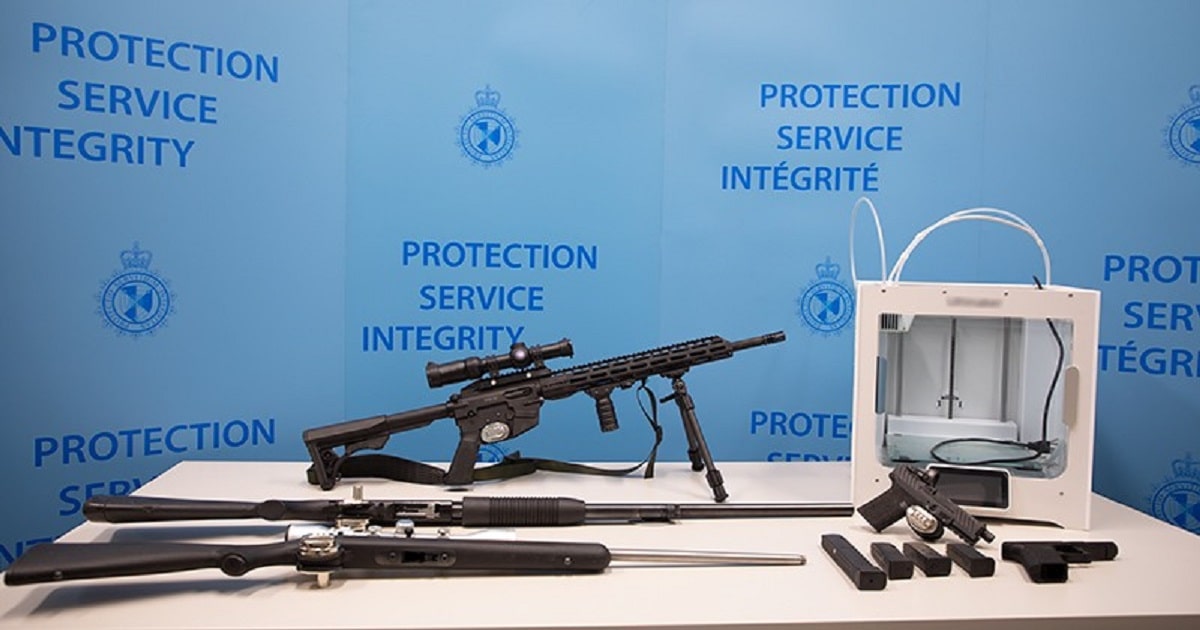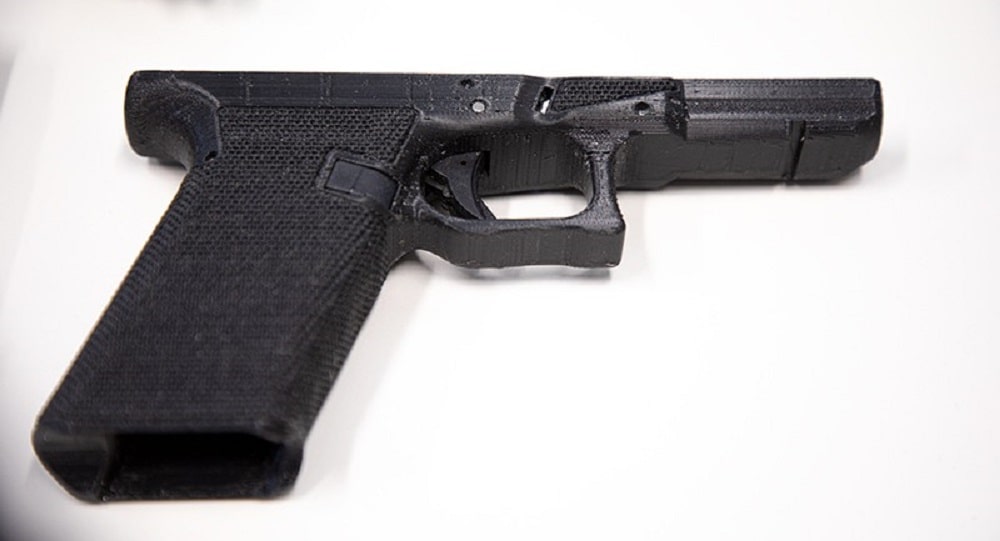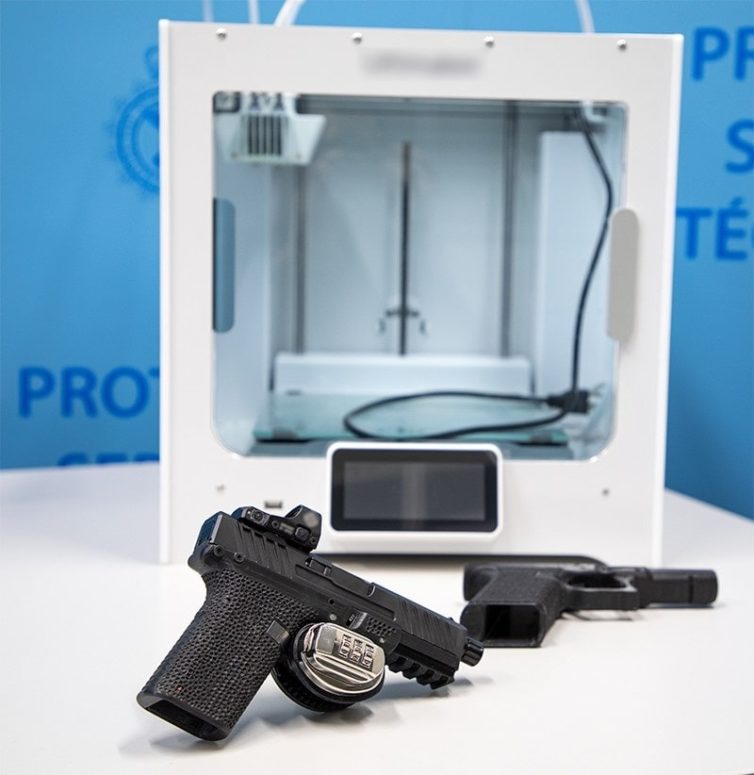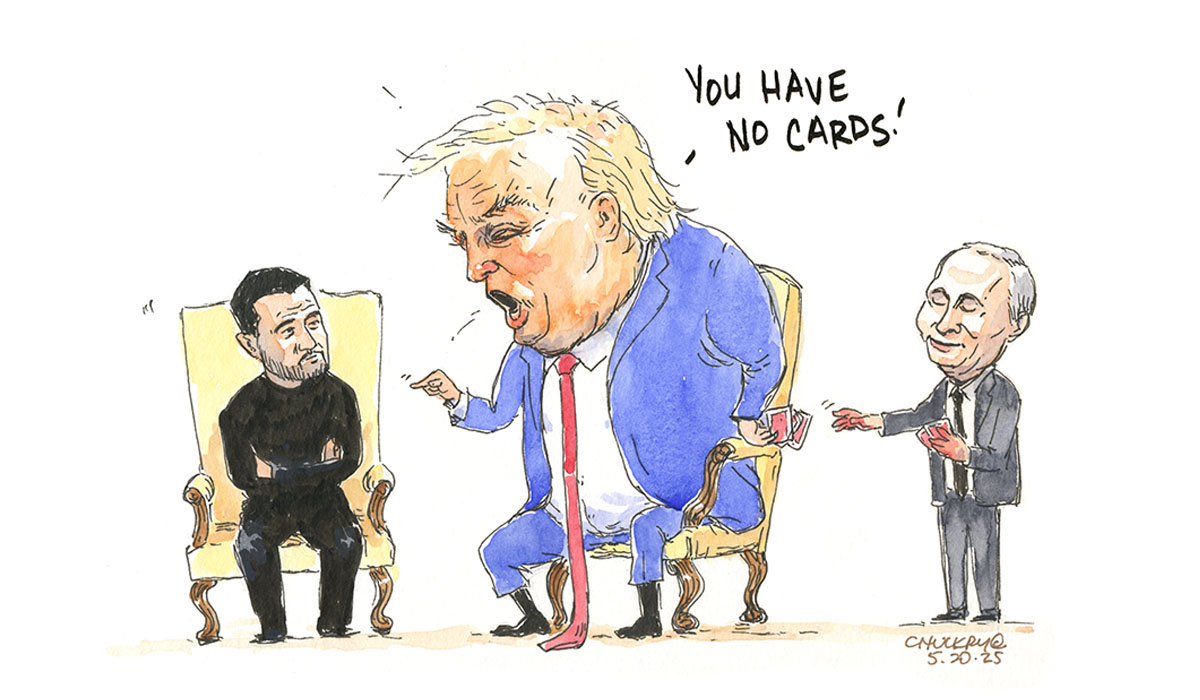CBSA Stops The Production of 3D-Printed Guns
- TDS News
- D.O.C Supplements - Trending News
- Western Canada
- February 4, 2022

Firearms in Canada are regulated by the Firearms Act and Part III of the Criminal Code.
The Canada Border Services Agency (CBSA) works closely with its partners to stop smuggling, keep restricted guns out of the wrong hands, and protect our communities. In 2021, CBSA officers across Canada seized 1,122 firearms, more than double the number from 2020.
Today, the CBSA announced the results of an investigation into 3D-printed firearms manufacturing. This case, which dates back to September 28, 2021, began at the International Mail Processing Centre in Mississauga, Ontario. CBSA border services officers were processing postal shipments and intercepted a suspicious package, destined for southeastern Manitoba from the United States. Upon closer examination, they found that the shipment contained undeclared firearm components, including metal parts and inserts most commonly used to reinforce the plastic frame of a 3D-printed handgun.

After reviewing the information and conducting further investigation, the CBSA and the Royal Canadian Mounted Police (RCMP) jointly executed a search warrant at a residence in the Rural Municipality of Hanover, Manitoba on December 16, 2021. Officers arrested a 34-year-old man who did not have a valid licence to produce or possess firearms, and seized the following items as evidence:
- two restricted 3D-printed handguns
- a 3D printer with filament
- three non-restricted firearms
- a personal quantity of ammunition
The CBSA Criminal Investigations Section released the individual on conditions. He now faces charges on the following counts:
- making false statements, contrary to Section 153(a) of the Customs Act
- manufacturing a restricted firearm, contrary to Section 99 of the Criminal Code (x2)
- possessing a firearm without a licence, contrary to Section 92 of the Criminal Code (x3)
- failing to follow firearms storage regulations, contrary to Section 86(2) of the Criminal Code (x2)
Anyone convicted of manufacturing firearms without authorization faces a mandatory minimum sentence of three years imprisonment. The accused is presumed innocent until proven guilty.
The CBSA thanks the RCMP National Weapons Enforcement Support Team and the RCMP East District Crime Reduction Enforcement Support Team for their assistance in this investigation.

“We’re taking action to keep Canadians safe from gun violence. A central part of this is strong action at the border, to stop guns from coming into Canada. I want to thank the men and women of the CBSA for their quick and decisive work to keep guns off our streets and protect Canadians.” – The Honourable Marco Mendicino, Minister of Public Safety
“Making your own gun with a 3D printer is not a hobby, it’s a crime. The CBSA works closely with the RCMP and other partners to stop prohibited and undeclared firearms and firearms parts from entering Canada, and will arrest and charge those responsible for such activities.” – Jeryn Peters, Director, CBSA Intelligence and Enforcement Operations Division (Manitoba)
Firearms in Canada are regulated by the Firearms Act and Part III of the Criminal Code. In Canada, it is illegal to make guns without holding the proper firearms business licence. Under Section 2 of the Criminal Code, a gun’s lower assembly (receiver blank) is in itself considered a firearm and unauthorized individuals cannot manufacture them. For the latest CBSA enforcement statistics, visit Canada Border Services Agency seizures.








